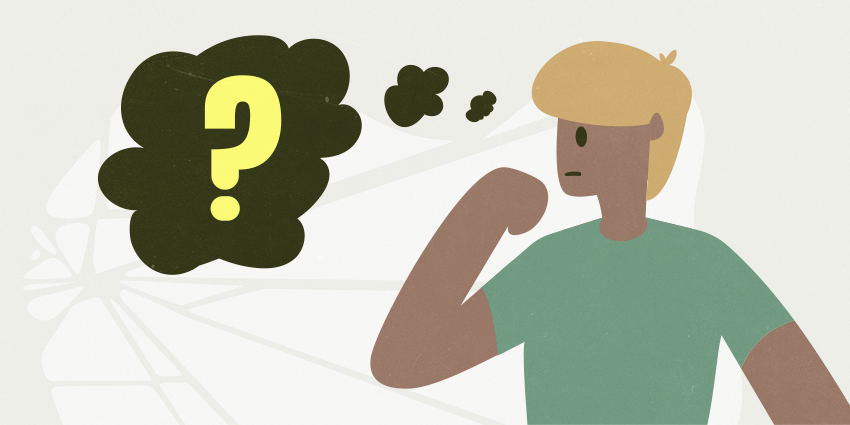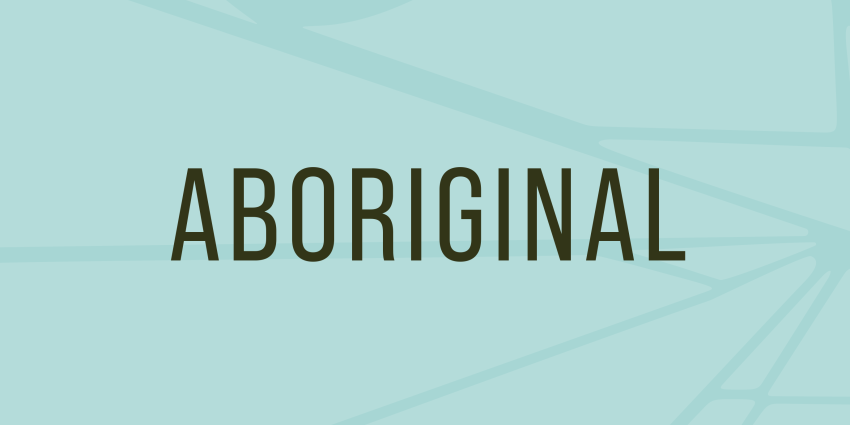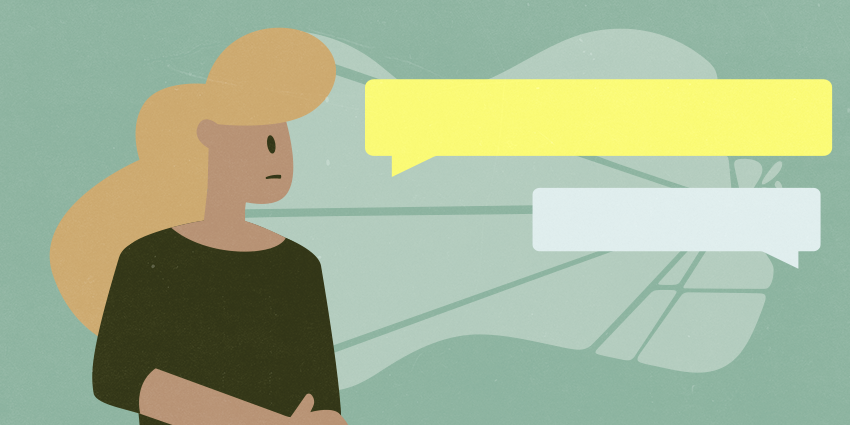If you, or someone you know, is in danger call 000 and stay on the line.
You can call 13YARN on 13 92 76 to talk with an Aboriginal or Torres Strait Islander Crisis Supporter.
No one should threaten, harass, humbug, or abuse you. If a family member or someone close to you hurts you or tries to control you, this is called family violence.
Sometimes family and domestic violence is called ‘family violence’. It can happen between partners, family, friends or members of your community.
There are many types of family violence. They are not always physical.
Family violence is never ok. It is not your fault, and you have to be really strong to speak up against it.
It's called coercive control
Coercive control is a form of family violence. It is not physical but is just as harmful. It can be hard to see coercive control and can look different for everyone.
Coercive control is when someone takes away your freedom or independence and stops you doing things you want to do.
It can happen in many different ways. They might make you feel scared, put you down, or force you to depend on them.
They might watch where you go, who you’re with and what you do. They get jealous a lot and make you feel shame.
Then they “love bomb” you, saying lots of nice things. This can leave you feeling emotionally trapped.
They may control the money, leaving you feeling alone and not able to leave them.
They tell you that you’re “crazy” or “no good”.
When these types of things happen again and again, it’s not love - it’s called coercive control.
Coercive control is family violence and is not a part of Aboriginal and Torres Strait Islander people’s culture. The first step to breaking free is to understand what it is and how to recognise it.
Am I experiencing family violence?
Sometimes we put up with abuse and violence. We think it’s normal and private business, or we feel big feelings of shame or mistrust even though help is available.
Family violence can have long lasting effects on victims, children and families.
Family violence doesn't have to be physical or sexual abuse. It can also be coercive control, social, cultural, spiritual and financial abuse.
Some examples of family violence can be:
- They make you feel scared or worried that they might hurt you or your kids.
- Physical abuse like pulling your hair, punching, slapping, choking, or kicking.
- They break your things or hurt your pets.
- They force you to do something by making you feel guilty if you don’t want to, or your partner acts like you owe it to them to prove you love them
- They call you names and make you feel bad about yourself.
- They separate you from your family, children, friends, community or culture.
- They don’t let you go to family funerals.
- They don’t let you return home or to Country.
- They stop you from leaving the house and being part of your community.
- They take your money or force you to give them money or other things you own.
- They spend all the household money on themself, without buying things you need everyday like food for you and the kids.
- They stop you from being able to keep yourself clean, such as taking showers or using deodorant.
- They tell you what you can and cannot wear, making you feel like you cannot dress the way you would like to.
- They don’t let you sit with other women like sisters, mum, aunties and Elders, to talk women’s business.
These are just some of many examples of family violence. You can find out more about what to look for if you or someone you care about is experiencing family and domestic violence.
How to recognise family and domestic violence
Worries you may have about family violence
Sometimes people don’t feel like they can speak up and talk about family violence. This can be for lots of reasons including:
- You are afraid of losing your kids.
- You are afraid of losing your home.
- You do not trust the police, the government or justice system to do the right thing.
- You do not know if you are experiencing family violence.
- You do not want to tell on someone from your mob, family or community.
- You feel embarrassed or shame to talk about what’s happening to you.
- You feel afraid that things will get worse if you speak up.
- You are worried that no one will believe you.
- You are worried about what will happen to your family if you report abuse/violence.
- There is no access to support in your area.
- You might have to leave your community to access support.
- You are afraid of what your partner’s family will say or do.
- You are afraid of “making things worse” by creating fights and arguments between your family, your partner and partner’s family.
It can be hard to leave for lots of reasons because of a strong culture or religion connections, love for your partner, family or kinship reasons, shame, you are worried about the physical or mental safety of children, or you are afraid that you could lose your home, money, or community.
Everyone has the right to feel safe. If you are worried about family violence, there is help available.
Help and support
If you are experiencing family violence, there are people that can help, including services and resources run by Aboriginal people.
Reach out to helplines – Speak up
- 13YARN: offers a free crisis support line available 24/7, created and run by Aboriginal and Torres Strait Islander people for their communities.
- Call them on 13 92 76.
- Wellmob: provides social, emotional and cultural wellbeing support for Aboriginal and Torres Strait Islander People.
- Djinda Service: helps and talks up for Aboriginal and Torres Strait Islander women and children in Perth who have experienced family violence or sexual assault and to help get them the support they need.
- Call them on (08) 6164 0650.
- 1800RESPECT: is a free national helpline for sexual assault and family violence support.
- Call them on 1800 737 732.
- Women’s Domestic Violence Helpline: offers support for women in Western Australia, with or without children, who are facing family and domestic violence. They can also refer you to women’s shelters.
- This helpline is run by the Department of Communities, and you will talk with someone whose job is to protect children. The Department of Communities is here to help.
- Call them on 1800 007 339.
- Men’s Domestic Violence Helpline: offers advice, support and help for men in Western Australia who are worried about their own violent or abusive behaviour, as well as for men who are victims of family and domestic violence.
- This helpline is run by the Department of Communities, and you will talk with someone whose job is to protect children. The Department of Communities is here to help.
- Call them on 1800 000 599.
- Kids Helpline: offers free support and counselling where you can talk through your problems. This is only for people 5 to 25 years old.
- Call them on 1800 551 800.
- Concern for a child's wellbeing: If you're worried about a child's safety, please call the Department of Communities Child Protection team on 1800 273 889.
- If you're calling early morning or at night, call Crisis Care on 1800 199 008. They provide help for child safety concerns and offer support for people in crisis, even when their office is closed.
- For more information about child protection, please visit Child protection.
Find more support services and helplines here:
Family and domestic violence services and resources
Find interpreters and resources in language
- Translated resources: find posters and social media resources on family and domestic violence.
- Aboriginal Interpreting WA: provides interpreting / translation services in more than 18 Kimberley and central desert Indigenous languages to clients anywhere in Australia.
- Call them for free on 1800 330 331.
Online safety
- eSafetyFirstNations: you can hear stories from Aboriginal and Torres Strait Islander people in language and find advice on how to help you stay safe on the internet.
Aboriginal legal assistance
- Aboriginal Family Legal Services: help Aboriginal and Torres Strait Islander people to live free from family violence and sexual assault. Aboriginal Family Legal Services offers free legal services, community education and other programs to help and support people to try to live without family violence and sexual assault.
- Call them on (08) 9355 1502 or call them for free on 1800 469 246.
- Aboriginal Legal Service of Western Australia: helps Aboriginal and Torres Strait Islander people with legal help and support.
- Call them between 9am and 5pm on 08 9265 6666 or anytime on (08) 9265 6644.
- Or call 1800 019 900. This number is free from anywhere in Western Australia.
- Marnin Family Support and Legal Unit: this service provides legal help and other support for Aboriginal women and children in the Fitzroy Crossing area who are going through family and domestic violence. They offer care that respects cultural needs and looks at the overall situation, not just legal issues.
- Call them on (08) 9191 5284.
- Albany Family Violence Prevention and Legal Service: offers legal help and support in the Albany area for Aboriginal adults and children experiencing domestic and family violence.
- Call them on (08) 9842 7751 or call them for free on 1800 557 187.
Aboriginal and Torres Strait Islander peoples' experiences of family violence
The history of colonisation, loss of land, unfair government policies, racism, and practices like removing children from families have caused ongoing harm, hurt and suffering. As a result, Aboriginal people face family violence at much higher rates than others. Family violence is not a part of Aboriginal and Torres Strait Islander people’s culture.
The WA State Government is working with Aboriginal people, communities and Aboriginal-led organisations to stop all types of family violence and abuse, as well as violence against Aboriginal women and children by non-Aboriginal people.






